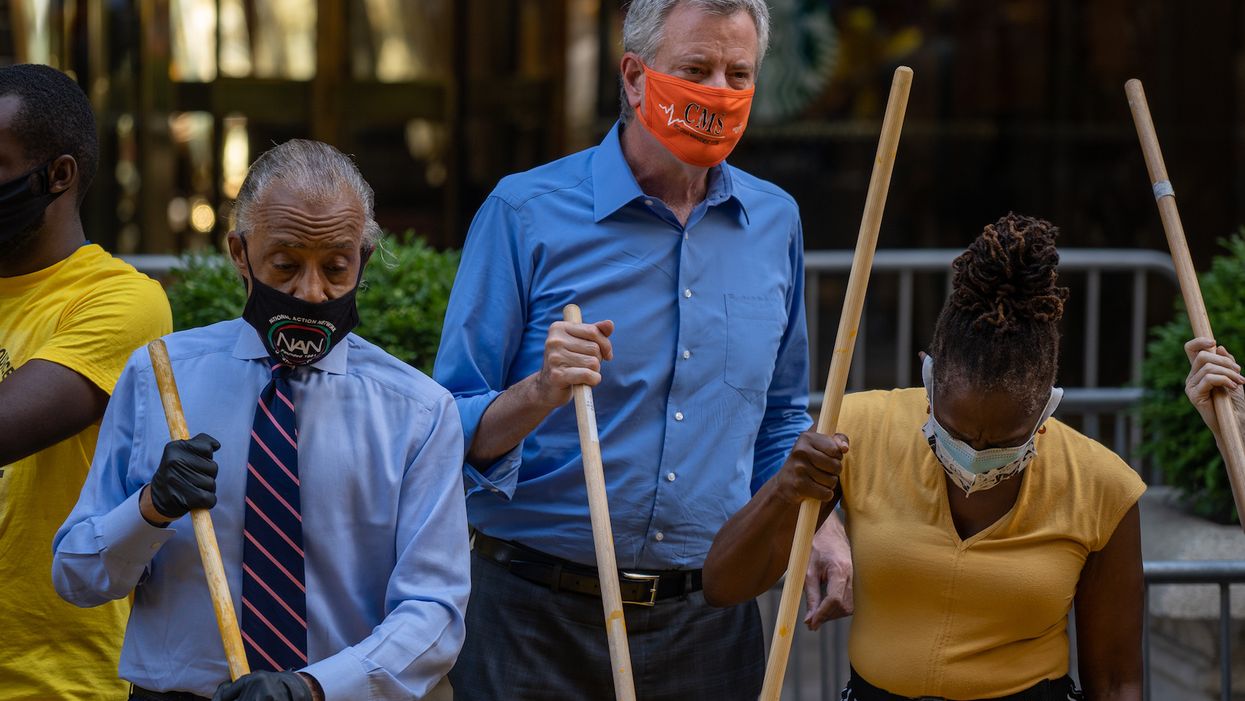
New York City Mayor Bill de Blasio (middle), his wife Chirlane McCray and Rev. Al Sharpton help paint a Black Lives Matter mural on Fifth Avenue directly in front of Trump Tower on July 9 in New York City. (Photo by David Dee Delgado/Getty Images)

The program ... sounds a lot like school
New York City schools will only be partially opened in the fall, with many students participating in a hybrid learning program in which they're only in school two or three days out of the week, and learning remotely on other days.
To compensate for this and ease the burden on parents, Mayor Bill de Blasio plans to create a publicly funded child care program for students of all ages where they can have a place to go and learn during the day, when the city is preventing them from going to school.
This day care program will have students meeting at community centers, libraries and cultural organizations, as well as other available spaces. The program will provide a "learning lab" environment that is tailored to kids' specific ages. There will be tutoring and field trips.
Some observers noted that this replacement for school sounds an awful lot like school.
De Blasio said the purpose of the program, which at the moment is planning to serve about 100,000 children, is to put kids in an environment where they can safely social distance, which he said is not possible in a normal school setting.
De Blasio last week called school reopenings "the single biggest part of restarting our city." However, most schools are not able to bring students back while also maintaining safe social distance, he added.
"When you think about social distancing, you need more space," de Blasio said. "You're going to have fewer kids in a classroom, fewer kids in the school building."
Parents will also have the option for their students to remain remote full time.
Available data shows that children are at an extremely low risk of severe illness from COVID-19, and are even less likely to die from it.
According to the Centers for Disease Control and Prevention, children make up 22% of the United States population, and only 5% of the total COVID-19 cases (1.7% age 0-9, 3.8% age 10-19).
Those children who do get infected "handle this infection very well, for the most part, with most having mild or absent symptoms. This is true for both younger children and teens," according to Dr. Megan Freeman, pediatric infectious disease fellow at UPMC Children's Hospital of Pittsburgh.
According to The Washington Post, countries in Europe and Asia have reopened their schools without seeing a significant spike in COVID-19 cases. State and local leaders across the U.S. are grappling with the decision of when and how to reopen schools, with many stakeholders, particularly teachers and their unions, expressing hesitation or opposition to reopening.